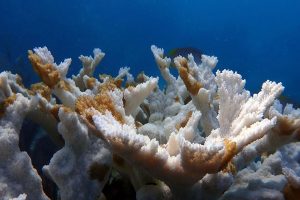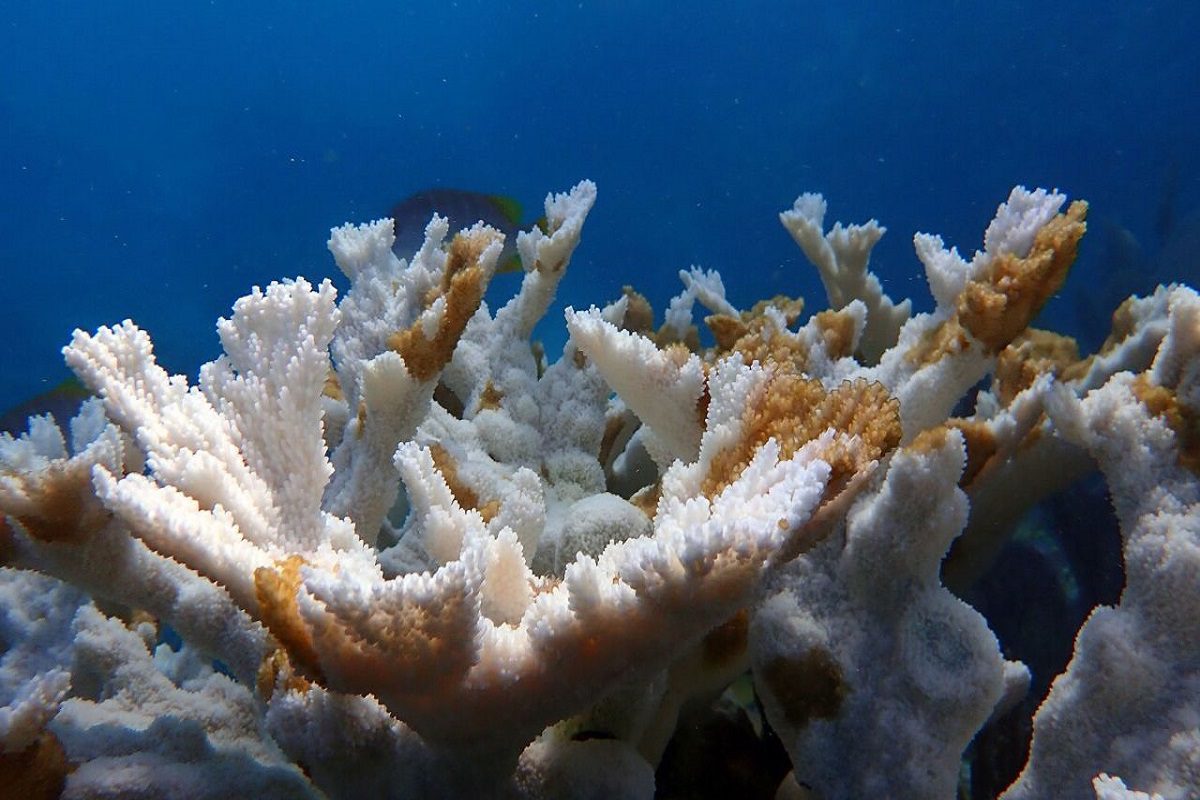Florida Coral Bleaching Crisis: Coral species in Florida are in danger because of a big bleaching event and record-high water temperatures. This harms the islands in the Florida Keys. Coral groups could die out if not saved in time, which could hurt ecosystems.
Scientists who study coral say that in just two weeks, many reefs in the Florida Keys have died or turned white. People are worried that the pale reefs could die “completely” in the next week, and if the ocean stays unusually warm, deeper reefs could also die.
The heat and lack of rain and breeze in Florida have caused the water temperature to reach new highs. At 5 feet, the buoys in Florida Bay read 101.1 degrees Fahrenheit. This terrible disaster happened because of the high temperatures.
Coral is sensitive to weather. When it gets too hot, corals turn white, lose the algae they eat, and die slowly. The water temperature is often in the mid-80s, which is dangerous for these tiny creatures.
On July 6, the ocean at the Florida Aquarium was a scary 91 degrees. Two weeks later, all of the coral turned white, and 80% of the population died. The Coral Restoration Foundation said that at Sombrero Reef near Marathon in the Florida Keys, “100% of coral mortality” had happened.
Photos and vids show the shocking death of the corals. Because of how bad things are, experts are worried about the coastal ecosystems.


READ MORE: Janus white dwarf star: Unveiling Janus The Unique with Two Faces
Scientists are saving corals from farms that are genetically important in order to protect the other coral species. Corals that have been saved are being moved to land to cool down.
Under the Endangered Species Act, “threatened” species like Staghorn and Elkhorn corals are getting more attention because they are genetically different and dying out. Losing Elkhorn reefs makes things more dangerous because they lower the damage from storm waves.
The Keys Marine Laboratory of the Florida Institute of Oceanography keeps thousands of pieces of coral in water tables with controlled temperature and humidity. The lab has saved about 1,500 corals, and the rescue effort may save more.
Researchers agree that some protected corals may need emergency care. Still, every piece kept shows us which corals might be able to live in warmer water and gives us a way to rebuild Florida’s reefs after the bleaching disaster.
To save the coral species in Florida, scientists, zoos, and study centers must work together. This race against extinction tries to save these important ecosystems and make corals more able to deal with ocean heat that has never happened before.
Our Reader’s Queries
Why is Florida’s coral reef dying?
Florida’s coral reefs flourish in temperatures between 73 and 84 degrees Fahrenheit. However, when the seawater temperatures soared to 90 degrees in South Florida and the Florida Keys for a few weeks in July, it became too scorching for the majority of species to endure.
Why is the coral reef crisis in Florida a threat to all of us?
The diminishing of coral reefs poses a significant threat to both wildlife and human communities. These reefs serve as homes to a large portion of marine life, including fish that are important for trade, and also act as a protective barrier for coastal areas during intense storms. In short, the existence of coral reefs is crucial.
Where is coral bleaching happening in Florida?
During the hot summer of 2023, marine and coral restoration experts in South Florida were quick to respond to the significant increase in ocean temperatures. Their urgent mission was to rescue the struggling coral on North America’s sole coral barrier reef in the Florida Keys.
What is happening to the Florida reef?
Florida’s Coral Reef faces numerous threats, including Stony Coral Tissue Loss Disease, pollution, rising ocean temperatures, and acidification. These factors are putting the future of the reef in jeopardy, leading to degradation.

